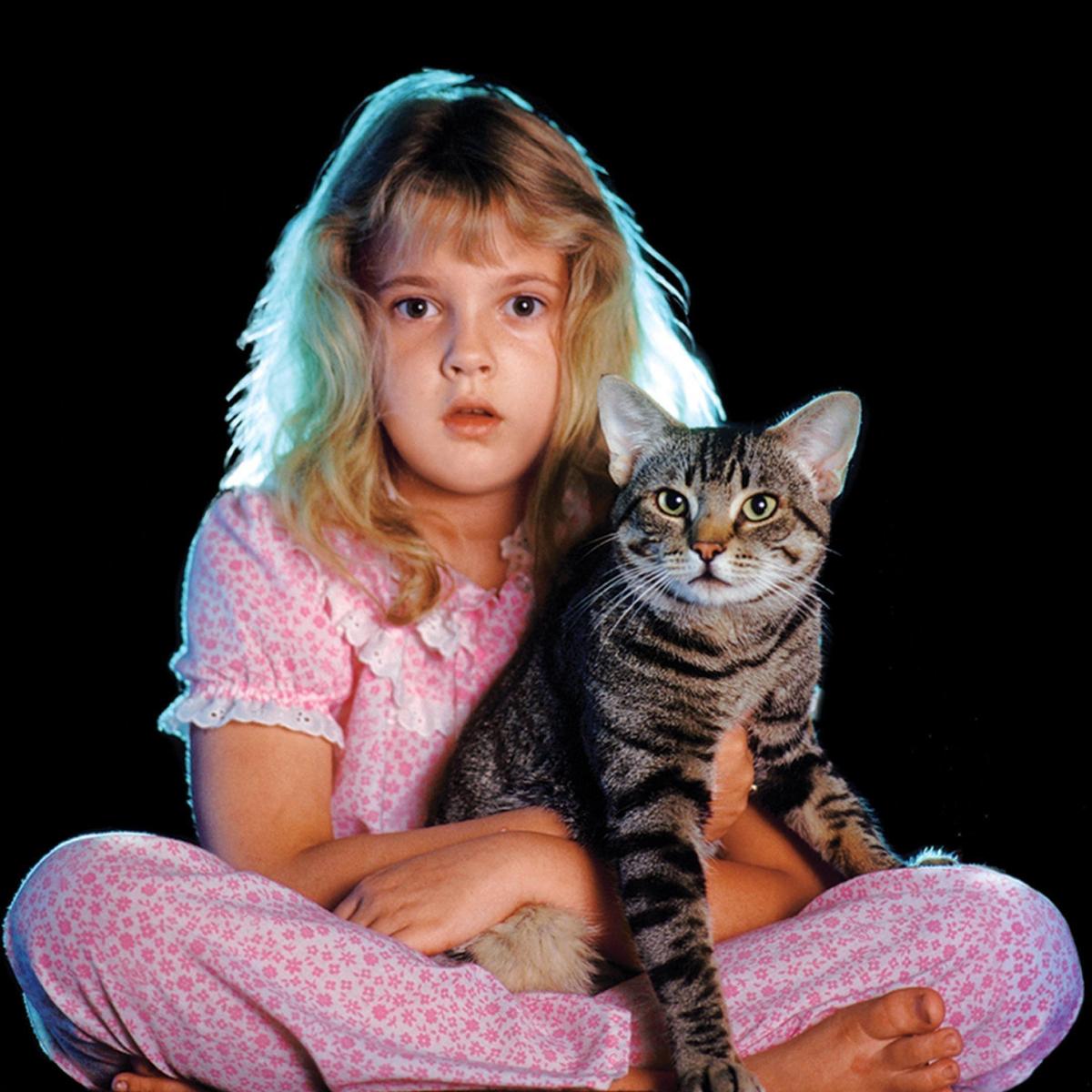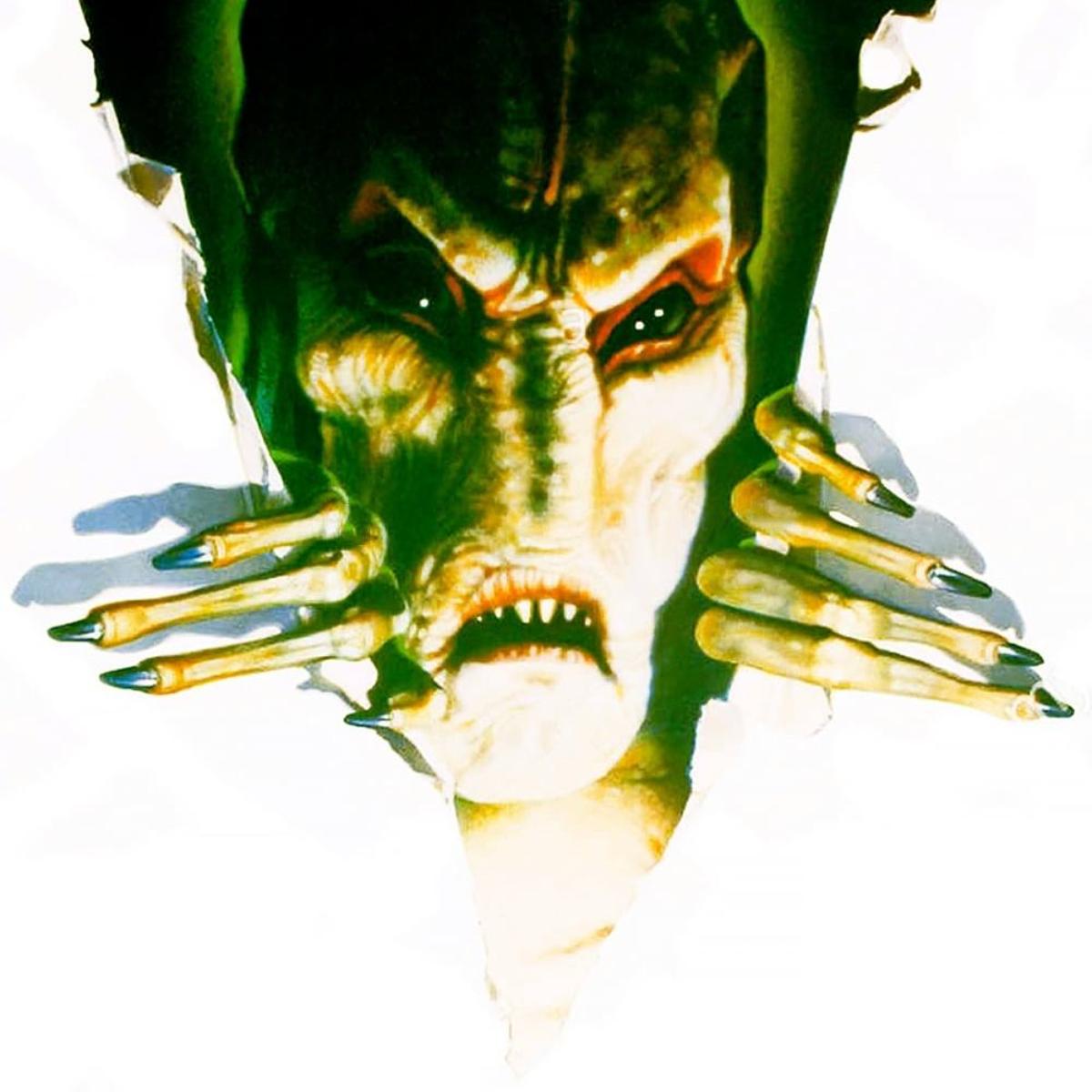Make America Not This Again.
The uncanny chill of The Dead Zone doesn’t come from its budget or any overt horror imagery. It radiates from the hollowed-out figure of Johnny Smith, played with spectral weariness by Christopher Walken. He’s not haunted by ghosts, exactly, but by possibilities, by futures glimpsed and fates unchangeable. The film doesn’t scare so much as it saddens, a rare tonal feat that marks it out even among the better King adaptations.
In the novel, King scatters the seeds early. A childhood ice-skating accident leaves Johnny with a minor head injury; just a knock, a bump. It doesn’t seem like much at the time, but King uses it to plant the idea that Johnny’s brain has always been a little out of step with everyone else’s. It’s only after a devastating car crash as an adult and five years lost to a coma that the dormant gift fully blooms. The film trims this down to just the coma, eliminating the childhood foreshadowing entirely. It’s a cleaner cut, but it loses the novel’s eerie suggestion that Johnny was always one bad moment away from being unmoored in time.
Released in 1983, just a few months before Christine, The Dead Zone is a quieter proposition. Where Carpenter revved King’s prose into high gear, Cronenberg turns the dial down to a clinical murmur. It’s the closest he comes to directing someone else’s vision, and that tension between King’s folksy supernaturalism and Cronenberg’s precise dissection gives the film a strange magnetism.
Walken is doing something deceptively fragile as Johnny; there’s no grand soliloquising, no Hollywood Oscar-bait noble sufferingTM. Just a man hollowed out by grief, by time lost and by the cruel trick of being forced to watch what others can’t, and knowing that few will believe him until it’s too late. Brooke Adams brings real warmth to Sarah, the love of the life Johnny could have had, while Tom Skerritt and Herbert Lom round out the supporting cast with unshowy integrity. But it’s Martin Sheen’s Greg Stillson who leaves scorch marks. His screen time is limited, but the shape he cuts is oppressively familiar. Originally drawn as a cautionary grotesque, Stillson now reads less like satire and more like prophecy: a sweaty, self-mythologising narcissist whose belligerent charisma camouflages authoritarian rot. In 1983, he was the kind of madman nobody thought could win. By 2016, he was president.
Stillson doesn’t merely resemble Donald Trump, he pre-empts him, anticipates him and the ends result of an already-underway decay of America. Not just in his performative machismo and bullying populism, but in the structural failures that allow him to rise. King sketches Stillson as a man who sees politics as theatre and violence as branding, someone who’ll court evangelicals one day then cheat on his wife the next. A man for whom loyalty is a zero-sum game permanently rigged in his favour, throwing people to the wolves when he’s got all he can from them. It’s a festering farce that might have once read as satirical exaggeration. Then came the MAGA rallies, the campaign merch, the crowds baying for blood. Then came January 6th. Then came July 13th, 2024, when Trump was grazed by an assassin’s bullet at a Pennsylvania rally and instantly anointed a martyr and the line between King’s nightmare and America’s newsfeed was permanently erased.
The climax, in which Johnny sacrifices himself to expose Stillson’s cowardice, catching him on camera using a baby as a human shield, plays in the novel and film as a darkly comic gotcha. A final, sickly image that ensured the monster would never reach office. In the film, the fallout is definitive: Johnny’s final vision shows Stillson’s career shattered and the man himself dead by suicide. It’s a clear, brutal punctuation mark. But if anything has become clear in the Trump era, it’s this: there is no gotcha. A photograph of Trump hoisting a baby as a bullet catcher would be met with cheers, memes, and shirts by morning. The moral gut-punch that finishes Stillson wouldn’t even dent Trump’s approval rating.
King wasn’t just imagining an evil man. He was diagnosing a political ecosystem ready to feed on spectacle, primed to reward arrogance and ruthlessness as authenticity. Stillson is a warning, but he’s also a symptom. And Trump, far from being an aberration, is what happens when that disease is allowed to run its course.
Production, as ever with King adaptations of this era, was circuitous. Dino De Laurentiis optioned the novel and ran through several directorial flirtations, including Stanley Donen and John Badham, before David Cronenberg came on board. It’s his most restrained film up to that point, absent the flesh-horror that marked Shivers, Scanners, or Videodrome. But the same thematic DNA is there: bodies broken by forces beyond their control, minds turned traitorous by unwanted knowledge. The gore is gone. The dread remains and the flesh that’s corrupted and corroded is the body politic.
Where King’s novel sprawls – as most of his do – luxuriating in doomed love, serial killers, political prophecy and long New England winters, the film condenses them and filters events through a narrower emotional lens. You lose some of King’s folksy sprawl, the real sense of America itself as a character but what you gain is precision, and a devastating inevitability.
The Dead Zone isn’t flashy. It doesn’t create iconography like Carrie, doesn’t bite like Cujo, doesn’t grind through the gears like Christine. It lingers; a supernatural thriller delivered as tragic character drama, haunted not by demons or monsters, but by the intolerable weight of knowing exactly how things will end and being powerless to do anything but get there. In that, at least, King and Cronenberg find common ground.











